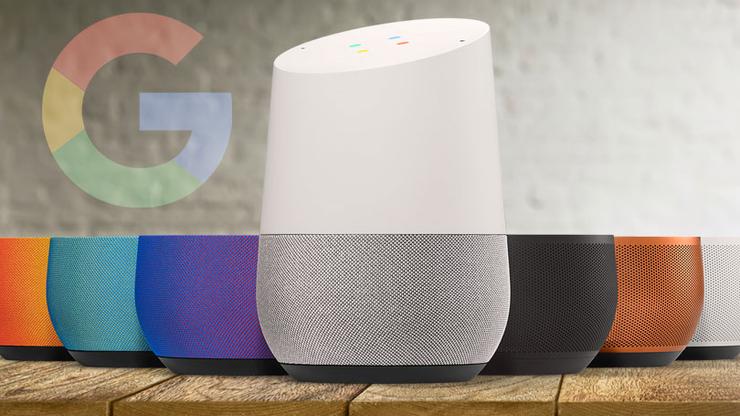At the ongoing Google I/O 2017 developer conference this week, Google Home had some major updates announced. These are not “cute” features that are “nice” to have. We’re talking major, major upgrades that tremendously improve the functionality and productivity of Google’s smart speaker.
First of all, we need to understand Google’s biggest strength and its biggest weakness – so far.
Their strength has always been algorithms and complex computations from the early days of Google Search. Crawling, indexing and delivering the world’s information at sub-second speeds gives you those skills.
AI is nothing more than a collection of extremely complex algorithms written to carry out various tasks. AI capability is also heavily dependent on neural networks, which are basically a different way to solve problems than by using algorithms. Google has had tremendous expertise in both areas for quite some time now.
On the other hand, Google’s biggest weakness has been a lack of focus. The Google Graveyard has many headstones to prove it.
But that’s changing.
Google is moving faster than ever before. They’re zipping along to catch up with Amazon, Microsoft and IBM in cloud computing, they’ve added robust functionalities to G Suite to compete with Microsoft’s Office 365, they’re squarely in the hardware space with newer products like Google Pixel smartphones and Google Home smart speakers, and they are now putting AI in front of everything else, just like Microsoft is doing with its “Intelligent Cloud, Intelligent Edge” in the IoT space.
With the Google Home, they have now brought in several features that puts it miles ahead of what Amazon Echo – and even the newly launched Echo Show devices – can do.
But, to be fair, before we explore the significance of these features, let’s try and remember that Amazon, though essentially a technology company, doesn’t have its roots in AI like Alphabet’s Google does. That’s not to say Amazon doesn’t use complex algorithms, per se, because their massive retail platform itself is possibly one of the best e-commerce platforms in the world, and that doesn’t come without a measure of AI-based techniques, such as those used by recommendation engines and so on. But they don’t have the experience in AI that Google already does with several of its existing products.
That said, both Google Home and Amazon Echo are engaging with each other in the same smart speaker segment, so it’s more than fair to compare their capabilities.
Features-wise, Google Home is now clearly ahead of Echo. Let’s see what advantages they have, including newly announced features:
- More advanced conversational capabilities, as opposed to skills-based voice commands
- Superior search functionality
- Better price point
- Calling system that includes mobile phones and land lines, but without needing to have your smartphone nearby
- Ability to recognize the speaker and execute user-specific actions across multiple software products and cloud services
- Ability to cast content onto a mobile device or Chromecast-connected smart TV, effectively removing the need to add a visual display to the smart speaker
- Proactive Assistance, meaning Google Home knows what to remind you of even if you don’t – like asking you to leave early for a meeting because there’s unusually thick traffic along your fastest route, or letting you know about a change of time for a booked flight you’ve got on your schedule
These features all serve to put Google Home in a completely different product category. It is no longer merely a smart speaker: it’s an extension of your smartphone, it’s a streaming device for audio and video (via content casting), it’s a personal assistant, it’s a smart home controller, it’s Google Search at the tip of your tongue and a whole lot more.
Even with these many new features, we believe Google is just getting started. The company is now pushing Embedded Android for connected cars as a deeply integrated alternative to Android Auto, and Google Assistant is coming along for that ride as well, bringing everything that the Google Home offers.
In the months to come, we also believe there will be deeper integration between connected automobiles and smart homes. We’re already seeing the signs of that with the current technology. But with Google now championing AI the way it should have done years ago, a lot is going to change on that front.
The newly refreshed Google is becoming the ideal company we always hoped it would be: agile, fast-moving and committed to delivering results, not just working on multiple “awesome” projects, or moonshots, that rarely go anywhere.
Don’t get me wrong – Google is not giving up its moonshots, but it has clearly discovered that the key to sustainable research is to keep pushing out features and products that arise from those efforts – features and products that really matter to users.
It’s barely been 7 months since Google Home came out. If they can do so much in such a short amount of time, and begin to threaten the current dominance of Amazon Echo devices – which we are confident they eventually will – then that is a huge validation of what Google can achieve in the next few years.
And that’s not to be taken lightly because Amazon is no pushover. Bezos and his team will fight to keep their supremacy in the smart speaker space, and they’re very likely to continue their dominance through 2017 and possibly even beyond – on the sales and user base fronts. But sooner or later, they might have to cede to Google Home’s deeper and wider capabilities.
Thanks for visiting! Would you do us a favor? If you think it’s worth a few seconds, please like our Facebook page and follow us on Twitter. It would mean a lot to us. Thank you.




